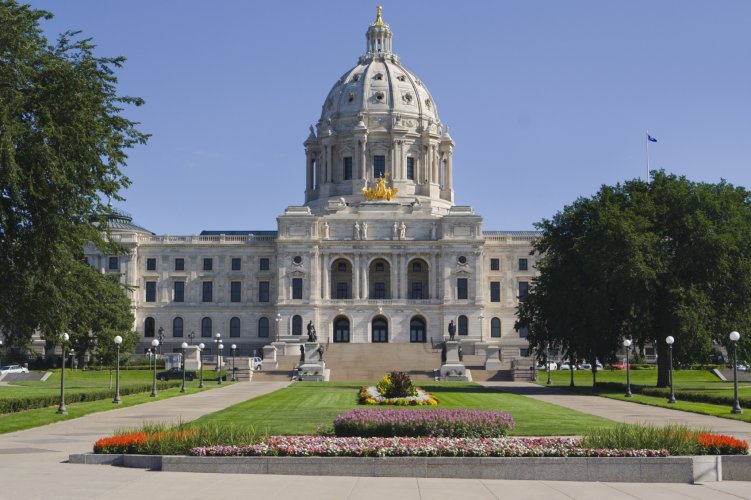
During its 2024 session, the Minnesota legislature made a significant stride in enhancing energy efficiency standards for newly constructed residential buildings (three stories or less). Specifically, the final version of the House Labor omnibus bill (HF 5242A) directs the state to adopt a new residential energy code every three years (the same update schedule of the model International Energy Conservation Code (IECC)), beginning in 2026. The updated codes must move incrementally towards a goal of reducing annual net energy consumption 70% or greater by 2038. Minnesota statute had previously outlined a six-year adoption cycle for the state residential energy code but had not required gradual improvements towards a specific target like the current legislation does.
Leading the Midwest in Energy Efficiency
This development mirrors 2023 legislation, in which Minnesota adopted a goal of reducing the annual net energy consumption of commercial buildings at least 80% by 2036. Commercial buildings include larger multifamily projects. Therefore, this implementation of a similar energy target and update process for residential buildings is extremely significant, ensuring that “anyone moving to a new home in Minnesota after 2038 will be living in a 'near zero' home, with the benefit of comfort and savings that come from an excellent building envelope and efficient equipment,” says Eric Fowler, Senior Policy Associate at Fresh Energy. “Energy efficiency is a consumer protection, and accelerating efficiency in Minnesota's residential energy code will result in a big win for all Minnesotans.”
Minnesota is the first Midwest state to set these types of progressive energy code targets for both residential and commercial buildings, and the rapid passage of this most recent legislation is especially impressive considering that residential codes often face more resistance than commercial ones. Two companion bills were introduced in the House and Senate on February 26, 2024, and by May 2nd, the energy target language had found its way into a conference committee supplemental budget bill. Ultimately, the legislation passed on May 19th with a House vote of 70-59 and a Senate vote of 34-2. This passage is also notable as it has been nine years since the state updated its residential energy code, currently the 2012 IECC. The legislation certainly positions Minnesota as a regional leader, setting a precedent for other states.
Future Benefits for Residents
Improved efficiency standards reduce consumption of all energy sources and offer multiple benefits, including:
- Lower consumer costs (particularly utility costs)
- Improved living environments
- Support for the state’s climate goals
By regularly improving its energy code standards, Minnesota ensures that these benefits will not only continue but will improve over time. For example, lower utility costs will contribute to more financial stability for residents; improved air sealing, moisture sealing and ventilation will lead to better indoor air quality and health; and finally, less energy consumption means less emissions. This last benefit is particularly important for Minnesota, since buildings contribute to approximately 40% of the state’s current emissions. Stronger residential energy codes, which significantly reduce greenhouse gas (GHG) emissions, are therefore crucial for Minnesota's climate and sustainability goals, which include reducing statewide GHG emissions 50% by 2030 and being net zero by 2050.
What's Next?
The state, through its Department of Labor and Industry, must prepare to make more substantial efficiency gains in future residential energy code updates to achieve incremental progress towards the 2038 goal.
The 2024 state legislative session significantly advanced Minnesota's clean energy transition. By prioritizing energy efficiency in residential building practices, Minnesota will enhance affordability, promote healthier indoor living environments and actively move the state toward its climate goals. This proactive approach speaks to Minnesota's leadership in efficiency, resilience and innovation within the Midwest.
MEEA will continue to track the implementation of both the commercial and residential code in Minnesota, but for more information or questions about the updates, please feel free to contact Building Codes & Policy Manager, Maddie Liput.